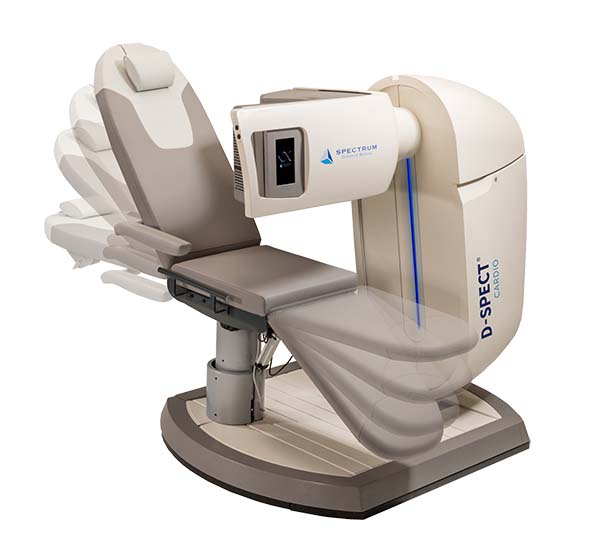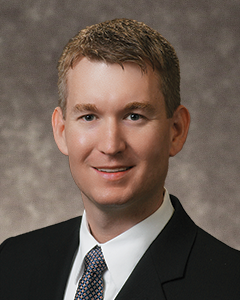D-SPECT Cardiac Stress Test Reduces Radiation, Speeds Diagnosis
September 8, 2021Categories: Cover Story
 D-SPECT reduces radiation up to 50% and decreases scan time from 12-15 minutes to 5-6 minutes. Photo: Spectrum Dynamics Medical
D-SPECT reduces radiation up to 50% and decreases scan time from 12-15 minutes to 5-6 minutes. Photo: Spectrum Dynamics Medical
North Kansas City Hospital patients with unexplained chest pain now can undergo a cardiac stress test that’s faster and with reduced radiation than the hospital’s previous technology. The new D-SPECT® also provides higher sensitivity, better picture quality and more patient comfort. NKCH is the only hospital in the Northland to have a D-SPECT, which replaces its SPECT.
“When our old camera was at the end of its life, we looked at newer solid-state cameras,” said Stephen Gimple, MD, FACC, a cardiologist with Meritas Health Cardiology. “The D-SPECT uses cadmium-zinc-telluride cameras integrated with solid-state semiconductor detectors, which are more sensitive for radioactivity so we can use a fraction of the radiation in a faster scan time to get the same pictures.”
As with the SPECT, the D-SPECT measures blood flow throughout the regions of the heart and evidence of left ventricular ejection fraction, which allows cardiologists to see evidence of coronary artery blockages.
“The reduction in radiation is up to 50%, and scan time has reduced from 12-15 minutes to 5-6 minutes. The imaging picks up fewer artifacts because there is less patient motion,” Dr. Gimple said.
The latter is because patients sit in a reclining chair, much like one in a dentist’s office, with their arms resting in a comfortable position. The SPECT required patients to lie flat and hold their arms above their head, which is difficult for some patients.
“Not only are patients more comfortable, but the D-SPECT camera is fixed over their chest. The SPECT camera rotated around the patient’s head, which was not appealing to patients who are claustrophobic and unable to undergo a PET/CT stress test,” Dr. Gimple added.
Dr. Gimple said he appreciates the hospital’s efforts to advance its imaging capabilities for diagnosing cardiac conditions, especially when patients cannot undergo a PET/CT due to insurance restrictions.
“Although PET/CT is our preferred nuclear stress modality because it provides the least radiation and the best image quality, not everyone can get one due to health insurance restrictions,” said Dr. Gimple, adding that Cardiac Imaging performs about 220 PET/CTs and 50 D-SPECTs each month.
He pointed to a comparison of NKCH D-SPECT studies and cardiac catheterizations. “In the first 19 studies of patients showing ischemia on D-SPECTs, all but one of their cardiac catheterizations showed coronary artery disease,” Dr. Gimple said. “That is a fantastically good result for nuclear cardiology.”

Stephen Gimple, MD, FACS
Dr. Gimple attended medical school and completed his residency in internal medicine at Vanderbilt University. He did his fellowship training in cardiology at the Cleveland Clinic.